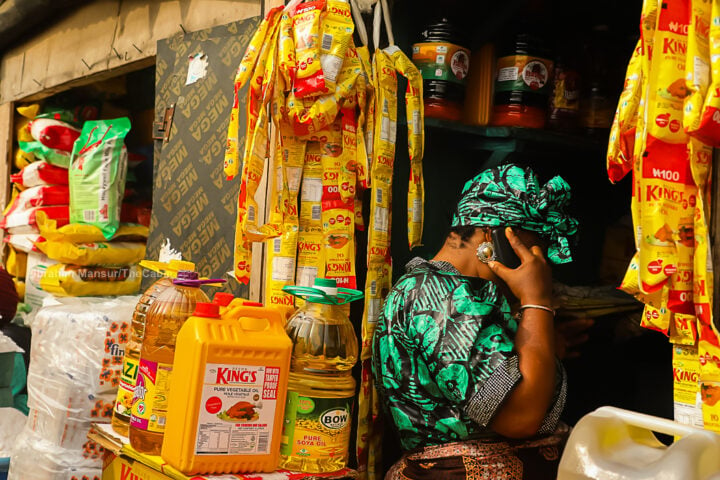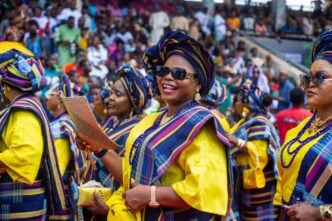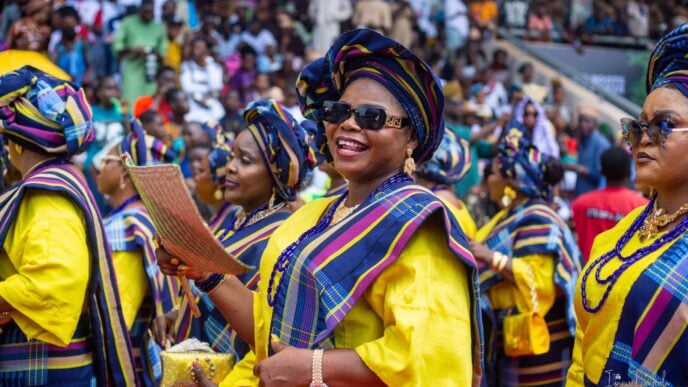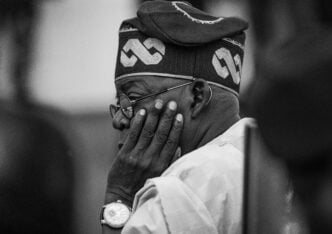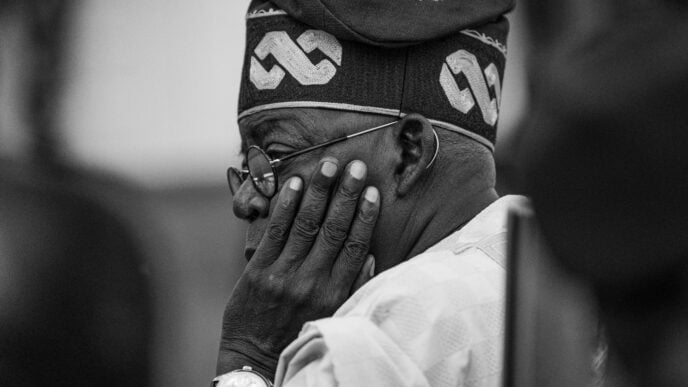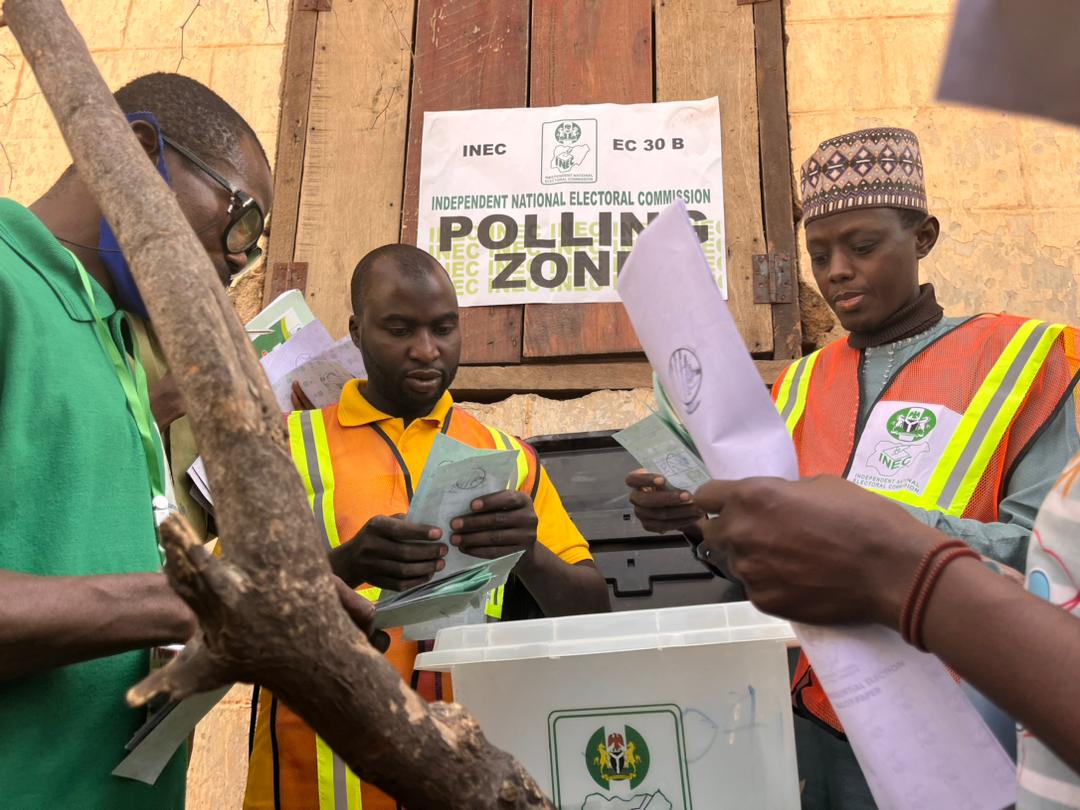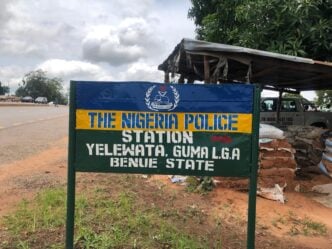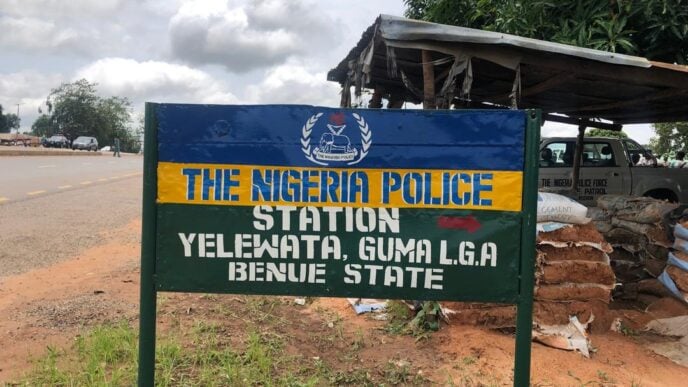BY AISHA KABIRU MOHAMMED
Gender inequality in employment costs the world twenty-one trillion dollars, to be exact. The inclusion of women in the labour force might just be the road to salvation for failing economies
“I used to sell fabrics online, but I didn’t have a plan or proper marketing skills, and I didn’t know how to compete with others.”
This quote is from Amina, a 19-year-old student living with a disability who narrates the struggle of joining the labour force due to her disability and lack of resources and proper information. Amina currently resides in Kano, Northern Nigeria, which has the highest percentage of unemployed women in the country. As of 2020, 12.23 per cent of the female population of Kano was unemployed (the highest number in Nigeria,) and 11.29 per cent was self-employed (the lowest in Nigeria).
Advertisement
Amina had a harder chance of joining the workforce and starting a business because of her disability, including a lack of access to education, and stereotypes that discourage women and disabled people from being active members of society and the Nigerian economy. Amina attends GGSS Yan Mata. Her mother has been Amina’s support system, ensuring that she goes to school and gets adequate healthcare.
“I was born with a physical disability, but I have no problem feeling bad when I look into my problem, I have a very good mother who supported me, took me to the hospital and took care of me well.”
The Gender Employment Gap Index
Advertisement
The World Bank recently published a gender employment gap index, which serves as a simple measure of the economic gains from closing the gender employment gap. The findings of the index are an indication that gender inequality and the lack of female inclusion in the world economy pose more than socio-cultural issues, but also economic loss.
The world economy currently operates at almost half of its potential due to the lack of female participation in the job market, according to Lianna Jones, global technical lead for economic empowerment at Sightsavers. The World Bank Gender Employment Gap Index presents evidence that the global GDP could increase from US$106 trillion to US$127 trillion, which is a gain of US$21 trillion, if women were employed at the same rate as men. This increase is more than the GDP of all European Union (EU) countries combined. This currently stands at US$18.6 trillion.
What stands out is that three-quarters of these economic gains would be realised almost immediately, with the remainder happening over a generation as structural changes take effect. This potentially represents the largest untapped opportunity for global economic growth in modern history.
The report emphasises that these gains would be distributed across all income levels, benefiting both developed and developing economies. For context, it would take 23 years to double global GDP at our current growth rates, but eliminating gender gaps could achieve this in just 11.6 years – essentially cutting the time nearly in half.
Advertisement
Lianna states that with equal economic opportunities, African economies in particular could experience a “double dividend” – simultaneously increasing productivity while reducing income inequality.
“From our experience of implementing disability-inclusive economic empowerment programmes across the world, we may likely see accelerated poverty reduction as women typically reinvest a good proportion of their income in their families and communities. Additionally, sectors currently experiencing skills shortages, including technology and manufacturing, would benefit from an expanded and more diverse talent pool, and we increasingly see reports highlighting the benefits and performance of diverse teams and diverse leadership. With Africa’s young population already projected to increase by more than 40% by 2030, capitalising on the full potential of both men and women represents the clearest path to economic transformation.”
Lianna emphasises the need for economic inclusion in bridging the gender employment gap and creating a stronger economy.
“Economic inclusion is key to sustainable development. When everyone is allowed to participate equally in the economy, the economy is stronger and more resilient. For Nigeria, economic inclusion represents an opportunity to leverage its large, diverse population”, she said.
Advertisement
Relating the employment gap index to the Nigerian economy. Lianna says that the data from the World Bank shows that African economies are operating below their potential due to women’s exclusion. In Nigeria, the gender gap in employment is 8.4%, suggesting that Nigeria could boost its GDP per capita by almost three times the national minimum wage if women were employed at the same rate as men.
“Addressing this gap would help increase the talent pool available to Nigerian businesses, enhance financial resilience, expand the customer base for domestic products and so on. The benefits are clear, and the good news is that we are seeing how targeted initiatives are showing promising results in narrowing this gap.”
Advertisement
When asked what the solution to the gender employment gap is, Lianna referenced the potential of economic inclusion programmes.
“Programmes such as the IT Bridge Academy in Lagos and Kano are demonstrating how targeted skills development can create pathways to formal employment for previously excluded groups, including women with disabilities. This initiative is generating measurable returns and needs to be expanded and sustained for true economic inclusion and growth to happen.”
Advertisement
Economic Inclusion Programmes
For a long time, NGOs and Not-for-profit organisations have attempted to fill in the gaps of inequality and injustice marginalised groups have faced. One such attempt is the SABI Woman programme by Sightsavers.
Advertisement
SABI Woman, which began in April 2024, is a project that empowers and prepares disabled women with the necessary skills to find jobs and build their businesses. It is one of the economic empowerment projects that Sightsavers runs with the goal of empowering 2000 disabled women in Nigeria. Amina is a beneficiary of the project. Amina was equipped with the relevant skills to run a fabric sales business. Before she joined the programme, Amina did not have a marketing plan or soft skills to run her business
“Before, I had no idea about most of the topics being taught, I didn’t have good marketing [structure]. I just do business without a plan. Now I have a better way of doing some of these things. Now I have learnt how to build up my business to assist myself. I have the knowledge to deal with market competition because I always have people that share the same business [to learn from], so with the knowledge I will do better than them going forward.”
The programme has helped put her dreams in sight and made her view women with disabilities much better.
“I hope to be a very big business woman that employs other people to work for me and also have their means of living through me. I think the best thing for a person with a disability to have is a good mother. Mothers should encourage their children just like my mother did to me. People with disabilities are strong people. Sightsavers has a good strategy for encouraging people with disabilities to achieve good things in life. I can see my other friends looking happy attending the programme.”
According to Razak Adekoya, global technical advisor for economic empowerment at Sightsavers, one of the biggest issues women and disabled persons face while trying to join the labour force is the lack of inclusion in society, especially in Nigeria, but also in other African countries. Razak mentions that from his experience as a technical advisor on several economic empowerment projects, certain stereotypes and assumptions hinder women and disabled people from being active members of the Nigerian and African labour force.
“We observed that 60% of persons with disabilities study certain courses, not just in Nigeria. In Kenya, we also noticed that a lot of them studied Special Education, community rehabilitation or community psychology based on their experience and the educational system. We sought to interrogate this narrative and provide them with critical skills so they can create a future that they desire and not what has been written for them by stereotypes”.
Besides the SABI woman programme, Sightsavers has other programmes which empower women and young people across the world. The Equal World campaign, for example, takes the fight for disability rights to the doorsteps of policymakers and global leaders by supporting people with lived experience to have a seat at the decision-making table. Lydia Rosasi, 30, works in the office of the Kenyan government spokesperson and is a global youth champion for the campaign. She describes how participating in the IT Bridge Academy led to her involvement in the Equal World campaign and the doors it has opened for her.
“As the global youth champion for the Equal World campaign, I have advocated for disability rights and inclusion on a global stage, particularly leading up to the UN Summit of the Future last year. My work involved raising awareness about barriers faced by persons with disabilities, promoting inclusive policies, and influencing decision-makers to commit to disability-inclusive development. Through this campaign, I have engaged in public speaking, advocacy efforts, and storytelling to challenge negative stereotypes and push for greater accessibility in different sectors, including education, employment, and political participation. I had the privilege of speaking at the United Nations Civil Societies Conference in May 2024, the UNCRPD Conference in June 2024, and on the sidelines of the Summit of the Future last September.”
Governments and communities often fail to see the importance of inclusion or implement structures and systems where women and disabled persons can be active participants in the labour force. Economic empowerment projects such as SABI Woman have helped in narrowing the gender employment gap.
The stories of Amina, Lydia, and countless others across Africa illuminate a stark truth: that exclusion is not just a moral failing but an economic one. The data underscores what advocates have long asserted: when women and persons with disabilities are sidelined from the labour force, entire economies suffer. But the inverse is just as powerful; when they are equipped, empowered, and included, the ripple effects touch communities, industries, and GDP alike.
As Nigeria and its neighbours confront widening inequality and youth unemployment, the path forward would appear to be clear. Bridging the gender employment gap is not charity but a demonstrated strategy to unlock Africa’s full economic potential. The clock is ticking. Can the continent afford to continue bearing the cost of inaction?
Aisha Kabiru Mohammed, a freelance journalist, writes from Abuja
Views expressed by contributors are strictly personal and not of TheCable.
